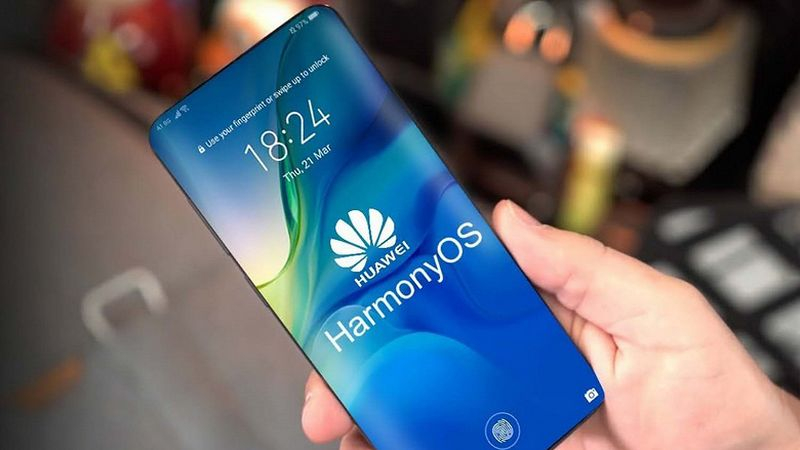
In a strategic endeavor that showcases China’s quest for technological independence, Alibaba Group Holding has joined forces with Huawei Technologies. This collaboration is aimed at bolstering Huawei’s HarmonyOS, positioning it as a formidable competitor against established operating systems like Google’s Android and Apple’s iOS. By integrating a range of native applications from Alibaba’s vast digital ecosystem, this partnership signifies a pivotal step towards enhancing the capabilities and reach of HarmonyOS.
Huawei Mobile Service made an announcement on Thursday that heralded the development of eleven Alibaba applications specifically for HarmonyOS. This list includes high-profile services such as Xianyu, a platform for trading second-hand items; Fliggy, an online travel agency; Cainiao, a courier service; and Ele.me, a food delivery service. This move is a clear indication of Alibaba’s commitment to enriching the HarmonyOS ecosystem with its proprietary applications, marking a notable advancement especially since HarmonyOS has ceased support for Android applications.

Alibaba’s collaboration with HarmonyOS is not a recent development. The e-commerce giant had previously pledged to create native versions for its workplace collaboration app DingTalk, and Amap, an online mapping service. Additionally, Alipay, the leading digital payment app in mainland China operated by Alibaba’s fintech arm Ant Group, had agreed in December to develop a HarmonyOS application.
Introduced in August 2019, HarmonyOS has been central to Huawei’s strategic shift, particularly after the US government added Huawei to its Entity List, limiting American companies from conducting business with Huawei without explicit permission. Despite initial criticisms about its similarities to Android, HarmonyOS has evolved, with its latest version, HarmonyOS Next, marking a departure from previous iterations. Huawei anticipates the commercial launch of HarmonyOS Next in the fourth quarter, demonstrating confidence in the distinct trajectory of its operating system.
A report by TechInsights confirmed Huawei’s complete migration to HarmonyOS in its latest smartphones. The flagship Mate 60 series played a crucial role in this transition, with Huawei’s market share jumping to 16.5% in the first six weeks of the year, according to Counterpoint Research.
Alibaba’s investment in HarmonyOS is just one facet of the broader acceptance the operating system is gaining within China’s tech industry. Other major players, including Alibaba’s e-commerce competitor JD.com, have also expressed their support for HarmonyOS Next. This aligns with the Chinese government’s broader ambitions for technological self-sufficiency, with over 200 partners already participating in the development of HarmonyOS applications as of January. Huawei’s goal to integrate 5,000 partners by the end of the year underscores the operating system’s potential to redefine China’s technological landscape, potentially surpassing iOS to become the country’s second-largest operating system, bolstered by robust handset sales.
Key Developments and Future Prospects
- Collaboration Between Alibaba and Huawei: A strategic partnership aimed at developing Alibaba’s native applications for HarmonyOS.
- Expansion of HarmonyOS Application Ecosystem: The inclusion of eleven Alibaba apps, enhancing the platform’s offerings.
- HarmonyOS’s Evolution: From its inception in 2019 to the anticipated launch of HarmonyOS Next, signifying a significant shift away from Android dependencies.
- Broader Industry Support for HarmonyOS: The support from major Chinese tech companies, including JD.com, and the involvement of over 200 partners in app development efforts.
This concerted effort by Alibaba and Huawei to develop an indigenous operating system replete with a comprehensive suite of applications underscores a broader move towards reducing China’s reliance on foreign technologies. It signifies an important step in fostering a self-reliant technological ecosystem within the country. This development not only enhances the competitiveness of Chinese tech giants on the global stage but also aligns with Beijing’s strategic goals of achieving technological sovereignty.
The alliance between Alibaba and Huawei in developing native applications for HarmonyOS is more than a mere technological collaboration. It represents a strategic pivot towards creating a self-sufficient tech ecosystem in China, potentially reshaping global technology power dynamics. As HarmonyOS continues to expand its application ecosystem and gains broader acceptance across the Chinese tech industry, it paves the way for a new era of innovation and competition in the global operating system market. This partnership, therefore, not only signifies a major leap towards technological self-reliance for China but also poses a significant challenge to the dominance of established operating systems in the global market.
The journey of HarmonyOS, backed by the support of Alibaba and the broader Chinese tech community, highlights a concerted effort towards achieving technological self-sufficiency. As this operating system continues to carve out its niche in a competitive market, the collaborative endeavors of Chinese tech giants like Alibaba and Huawei underscore a strategic move away from foreign technologies, promoting a more autonomous and robust tech ecosystem within China.
Related News:
Featured Image courtesy of Tech News Space
